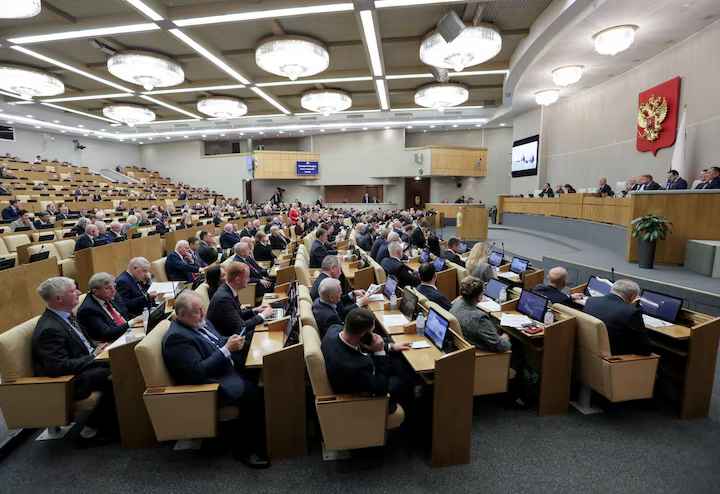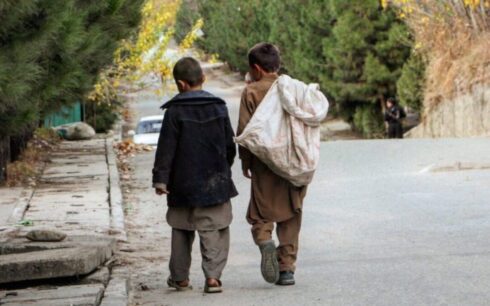MOSCOW — Russia moved closer to recognizing the Taliban government in Afghanistan on Tuesday, as the State Duma, the lower house of parliament, approved a bill in the first of three readings that would allow the removal of the Taliban from Moscow’s list of banned terrorist organizations, Russia’s Interfax news reported.
The vote marks a significant shift in Russia’s approach to the Taliban, which seized power in August 2021 following the chaotic withdrawal of U.S.-led forces after two decades of war. While no country officially recognizes the Taliban government, Russia has increasingly engaged with the group, which President Vladimir V. Putin described in July as an ally in combating terrorism.
Moscow views militant groups across a region stretching from Afghanistan to the Middle East as a critical security threat.
This concern has been heightened by the recent toppling of Syrian President Bashar al-Assad, a longtime Russian ally, and a deadly attack in March near Moscow. That attack, which killed 145 people at a concert hall, was claimed by the Islamic State. U.S. intelligence officials attributed it to Islamic State Khorasan (ISIS-K), the Afghan branch of the group.
The Taliban claims it is working to eliminate ISIS-K’s presence in Afghanistan, a stance that aligns with Moscow’s security interests.
Despite these developments, Western diplomats remain firm that international recognition of the Taliban is contingent upon significant policy changes, particularly regarding women’s rights.
The Taliban have banned girls and women from attending high schools and universities and imposed severe restrictions on their movement without male guardianship.
While the Taliban assert they respect women’s rights under its interpretation of Islamic law, critics say these measures amount to widespread repression.
Russia’s evolving stance on Afghanistan is shaped by its own fraught history in the country. Soviet forces invaded Afghanistan in 1979 to support a Communist government but faced fierce resistance from U.S.-backed mujahideen fighters. The war, which ended with a Soviet withdrawal in 1989, claimed the lives of approximately 15,000 Soviet soldiers and left deep scars in Russian society.





